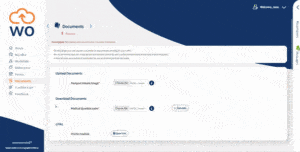The forthcoming Good Work Plan changes require a rethink of the ways that employers are processing and onboarding new hires.
This was the message from Mark Emery, a specialist employment lawyer with 18 years of experience, who was sharing his knowledge with Webonboarding’s Simon Connell.
The Good Work Plan covers a range of changes to UK employment law which come into effect on April 6th, 2020. It includes revised rules on what and when contractual information is shared with new hires.
Mark Emery, a partner with the Freeths commercial law firm, highlighted the need for employers to be fully prepared for these changes and to have effective onboarding processes in place.
What are the Good Work Plan changes?
The new legislation is removing the two month period that employers currently have to provide new starters with ‘written particulars’ that cover all of their basic terms and conditions.
From April 6th, 2020 this information needs to be provided on or before the person starts work and it will apply to all ‘workers’, not just employees.
The range of information that needs to be included within these ‘written particulars’ is also being extended to include additional information such as length of roles and details of all forms of remuneration.
Mark Emery said:
This becomes a day one right as opposed to the two-month right that currently exists. It’s a right which also enhances the range of information which you have to give to an employee.
As a consequence, employers have to be ready to change their practices and to ensure that from day one an employee is fully aware of what their terms and conditions are.
The 2019 ‘Welcome Aboard’ study, commissioned by Webonboarding, found that 71% of UK employees have not completed all of their paperwork before starting a role. For over a quarter (27%), they had to wait up to a month before they had received all of the information from the employer.
Confusion caused by IR35
Adding to the 2020 challenges faced by hiring teams is the IR35 changes to tax legislation. This requires larger SMEs to identify the relationship status of workers before they start a role – whether they are an ‘employee’, ‘worker’ or ‘self-employed’.
Mark warned: “The combination of these two areas means that there’s an awful lot more work for employers to do before they take on new employees or workers.”
The changes place an emphasis on organisations having effective administrative processes in place to manage employee onboarding. Typically, it’s something that’s still handled using a traditional manual approach.
Importance of efficient onboarding
Mark’s advice to employers ahead of the April 2020 changes is to seek expert advice and to make sure that proper systems are in place to manage the process.
He said:
Having a proper system in place benefits the employer. You need to have a process that will ensure that employees are getting the information that’s required on or before day one.
An effective system is going to save time and money while being a benefit to both employer and employees.”
The increased pressures on employee onboarding are causing more hiring teams to look for alternatives to the traditional management methods. For many, this means moving over to a cloud-based system which automates the administrative approach.
Webonboarding removes the need for any manual or paper-based processes, providing all of the information that a new starter requires via an online portal. Digital signatures allow written particulars to be instantly accessed and documents signed.




